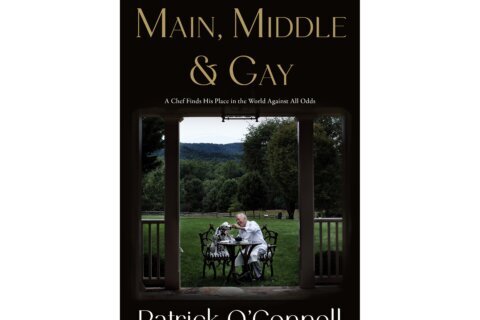WASHINGTON — The seventh installment of any series has no right to be good, but those looking forward to “Star Wars: Episode VII” can take comfort in the latest entry of the “Rocky” franchise.
Hey, yo! This knockoff is an underdog knockout, a most pleasant Thanksgiving surprise.
Perhaps it’s not all that surprising, considering the fresh infusion of talent. After writing the original “Rocky,” Sylvester Stalone directed the next five “Rocky” sequels, allowing his over-the-top, montage-heavy direction to turn the franchise into a corny caricature of its original intimate, gritty realism.
Now, Stalone humbly hands over the reins to indie filmmaker Ryan Coolger, who recently ruled Sundance with his urban drama “Fruitvale Station” (2013). He reunites with”Fruitvale” star Michael B. Jordan as Adonis Creed, the long lost son of Rocky Balboa’s legendary rival Apollo Creed, who gave Rocky an underdog shot in “Rocky” (1976), lost a rematch in “Rocky II” (1979), trained him to face Clubber Lang in “Rocky III” (1982) and died in the ring against Ivan Drago in “Rocky IV” (1989).
Turns out, Apollo had an illegitimate son with his mistress, born after Creed’s passing. At the outset of “Creed,” an orphaned Adonis sits in juvenile detention before being taken in by Creed’s widow, Mary Anne (Phylicia Rashad), who reveals his heritage and raises him in her Los Angeles mansion. But something inside Adonis — his father’s boxing blood — makes him set off for Philadelphia to train under Rocky (Stalone). He wants to do it on his own terms, scrapping the “Creed” name to instead fight as Adonis “Hollywood” Johnson. Rocky agrees to keep the family secret, but word is about to get out as promoters dream of a bout with undefeated champ “Pretty” Ricky Conlan (Tony Bellew).
“Creed” works precisely because its filmmaker follows the exact theme of its plot. Like Adonis Creed, Coogler wants the film to stand on its own merits, its own story, its own characters, its own vibe and its own name, reluctantly embracing its lineage with an admirable patience not found in most sequels. To put it in boxing terms, Coogler just entered the studio tentpole arena and wowed the judges. To put it in “Rocky” terms, an elevated train just left Fruitvale Station and passed Mighty Mick’s Gym.
Coogler’s most triumphant directorial moment comes during the film’s middle fight, which boasts a long, continuous shot that lasts the entire fight. That’s something that Best Director winner John G. Alvidsen didn’t even attempt in the first “Rocky;” in fairness, he was busy pioneering the Steadicam during a legendary tracking shot up those Philadelphia steps. Coogler’s continuous shot recalls Martin Scorsese’s masterpiece “Raging Bull” (1980), which used a brilliant long-take as Jake LaMotta (Robert DeNiro) and brother Joey (Joe Pesci) made their way from the dressing room to the ring.
In “Creed,” Coogler cheats slightly during the stadium entrance, using a moment of shadows to mask a cut (No worries, even “Rope” and “Birdman” did the same to continue the illusion). Instead, Coogler starts his long-shot as soon as the fight starts — and it’s glorious to watch. Carefully choreographed, Coogler’s camera dances around the fighters in the middle of the ring, then continues over to the corner between rounds, re-emerging out to the center of the right for the next round. Hats off to cinematographer Maryse Alberti, who shot Darren Aronofsky’s masterpiece “The Wrestler” (2008).
This is not merely a case of fancy filmmaking meant to please hard-core cinephiles. Like most cinesthetic techniques, it’s heralded because it works wonders on the mainstream audience’s subconscious. We actually feel the grueling duration of the fight in a way that we wouldn’t by cutting.
Cut me, Mick? More like, don’t cut.
https://www.youtube.com/watch?v=B_rDNVBYhMc
Beyond this continuous fight sequence, Coogler’s other big moment comes during the highly anticipated training sequence. After all, this is a Rocky movie, so we’ve got to have a pre-fight training sequence. Teased in the trailers, a slow motion Jordan runs toward a backtracking camera while wearing the nostalgic gray hoodie made famous by the Italian Stallion. Only this time, there is no pounding slabs of beef in a meat locker. This time we get ATVs popping wheelies through the streets of Philadelphia. It doesn’t seem like that would work, but under Coogler’s eye, it absolutely does.
Coogler deserves the most praise for prioritizing the film’s intimate moments. Just as Rocky and Adrian flirted in pet shops and skating rinks, Adonis strikes up a realistic romance at steak-and-cheese joints and dance clubs with his neighbor Bianca (Tessa Thompson), who moonlights as a DJ.
It’s been fun watching Jordan grow into a moviestar after TV roles like Vince in “Friday Night Lights” (2009) and Wallace in “The Wire” (2002), which “Creed” homages by casting Avon Barksdale (Wood Harris) in a bit part at the gym. Now, thanks to Thompson, who played civil rights activist Diane Nash in Ava DuVernay’s “Selma” (2014), Jordan torches his “Fantastic Four” flop by kindling love’s flame.
Equally intimate are Jordan’s scenes with Stalone. Without spoiling any plot points, it’s safe to say that Rocky becomes a bit of a father figure for Adonis. At the film’s outset, Rocky’s real son has long since moved to Canada, leaving Rocky alone to grieve the deaths of Adrian and her brother Paulie, to the point of naming an Italian restaurant after her, filled with old fight photos between he and Apollo.
Stalone’s teary-eyed, broken-down performance has inspired some pundits to hope for a Supporting Actor Oscar nomination. We’ll have to see what the rest of the crop looks like over awards season, but such an underdog selection would be a kind gesture to Stalone, who hasn’t been nominated since earning two nods for both writing and starring in “Rocky” (1976). It could also set up a fun clash of boxing managers with Forest Whitaker in “Southpaw” (2015). Nomination or not, Stalone proves that the Italian Stallion is not out to pasture, but rather can still race around the track one last time.
The personal relationships — and professional climb — collide in a culminating final fight packed with gripping action, slow-motion knockdowns and hints of the old “Rocky” theme. Viewers will clap upon hearing the musical homages to Bill Conti’s iconic “Gonna Fly Now.” And at least speaking for our D.C. critics screening, it’s been a long time since I’ve seen a pre-screening audience cheer as much during a climax. This is a credit to Coogler’s pacing, but also to the franchise’s unrivaled formula.
If you think you’re cheering here, imagine audiences in 1976. The original “Rocky” remains the rare film to win both the Academy Award for Best Picture and the year’s box office as the top grossing flick. Such blends of art and entertainment are truly unique across the film history landscape. To this day, its script ranks No. 78 on the WGA’s Top 101 Screenplays, while the film itself ranks No. 57 on the AFI’s Top 100 Movies, No. 4 on the AFI’s 100 Cheers and No. 2 on the AFI’s Top Sports Movies.
This reviewer has long insisted “Rocky” contains more clever directorial concepts than academics would like to admit. Perhaps it’s not at the auteur level of 1976 rivals like “Taxi Driver” or “Network,” but there’s far more going on than you think. I have yet to see a textbook seriously discuss Alvidsen’s symbolic use of Adrian’s bird cage. So the next time someone says “Rocky” is just a pop culture phenomenon rather than high art, kindly point them to this exclusive evidence in the video below:
In this franchise, there is simply no topping the skill, grace, influence and inspiration of the 1976 original. Every subsequent effort, no matter how disciplined, is bound to lose originality points. “Creed” is not without flaw, inserting one too many melodramatic moments outside the ring and inserting corny bits of herculean strength inside the ring. It would have also been nice to see Rashad sprinkled in more throughout the movie, rather than simply appearing in the beginning and the end.
Still, as the end credits dedicate the film to Irwin Winkler’s late “Rocky” co-producer Robert Chartoff, who died in June, “Creed” fittingly feels like the end of one era and the exciting beginning of another.
Underdog shots rarely come for young filmmakers, but after going the distance, it’s time to cheer:
Yo, Coogler! You did it!

The above rating is based on a 4-star scale. See where this film ranks in Jason’s Fraley Film Guide. Follow WTOP Film Critic Jason Fraley on Twitter @JFrayWTOP.








